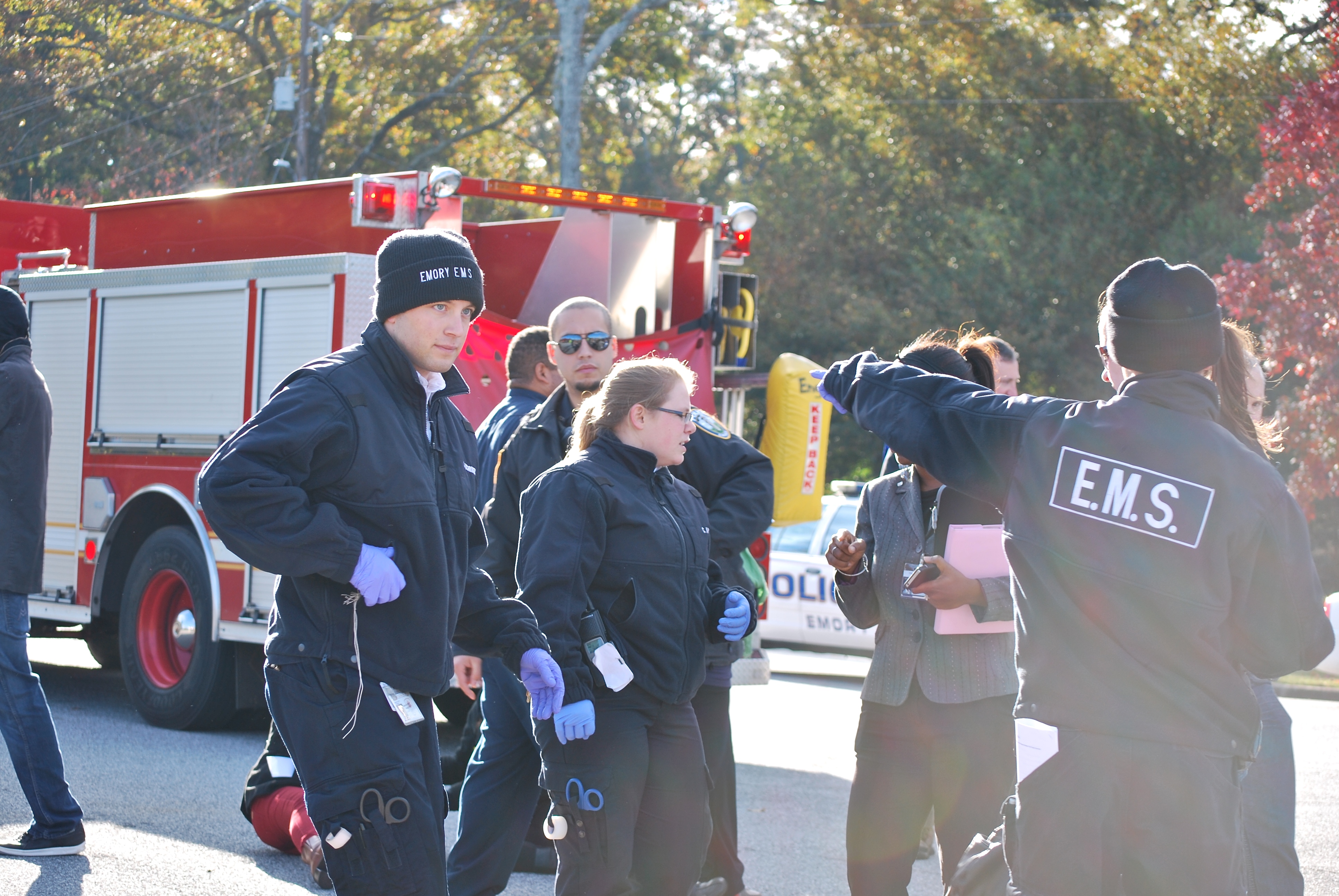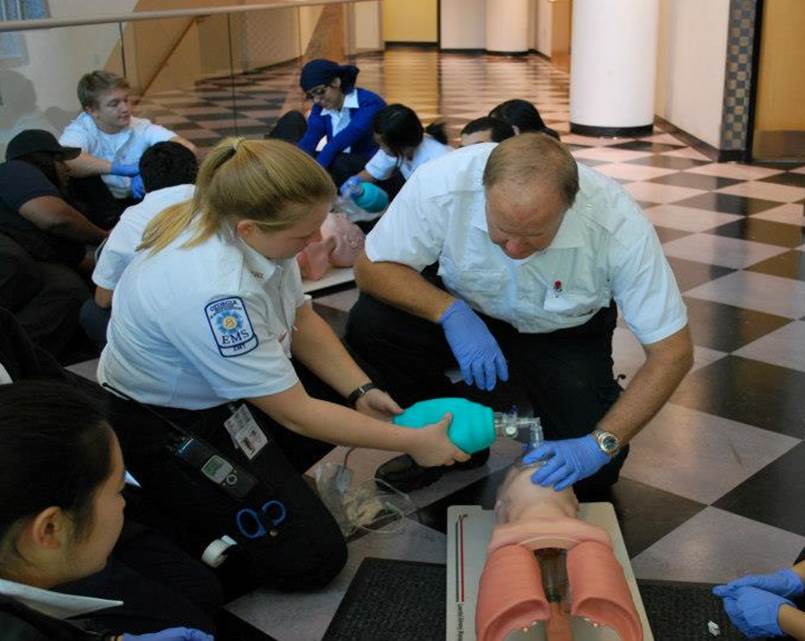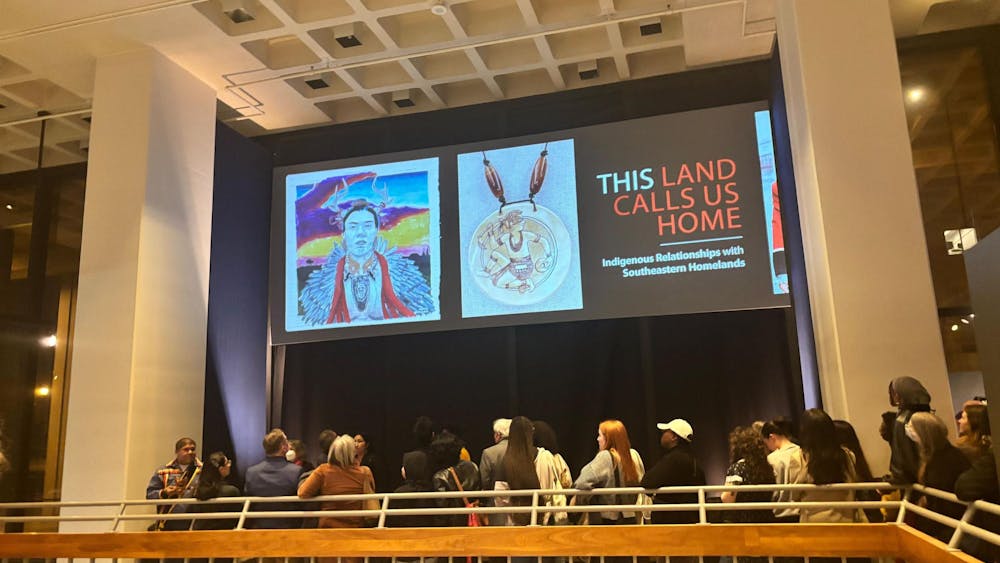Emory Emergency Medical Services (EEMS) is a student-operated volunteer EMS agency. Many EEMS volunteers are students at Emory. These students are drawn to the program for various reasons and take an in-house course over an academic year.
College senior and Emory EMS Chief Morgan Taylor has worked for the unit for three years.
“I’ve been in love with medicine ever since I was eight years old, and I just couldn’t pass up the opportunity to give hands-on patient care and ultimately have responsibility for my patients,” Taylor said.
College sophomore Katherine Morford, who has been an AEMT for about a year trained to be a lifeguard when she was in high school, but had never gotten a chance to apply the skills that she learned. Being a part of the Emory EMS program finally presented her with an opportunity to learn and put those skills to use.
“It was a good way for me to dip my toe into the healthcare industry without starting a pre-health track or committing to medical school. That, and it is always a nice to know how to save someone's life,” Morford said.
According to Taylor, the responsibility is the best part of being an EMT — having responsibility for patient care and the chance to establish a rapport with her patients. “Emory EMS is the only experience I’ve had that gives me direct responsibility for my patients. In those first few minutes of treating a patient, we can provide immediate, life-saving care,” Taylor said.
Another part of being an EMT is being able to comfort the patients who may be terrified and experiencing great levels of pain and discomfort, according to Morford, who says that many of the calls she responds to involve patients who are experiencing the worst moments of their lives.
“That's my favorite part: being there with the patient, empathizing with their pain, calming their nerves, and hopefully making their day just a little bit better,” Morford said.
The assumption that the program deals only with intoxicated patients on campus is not accurate, according to Taylor.
“We respond to a wide range of calls, from sprained ankles to seizures to cardiac arrests,” Taylor said.
There are challenges that EMTs have to face as well.
Patients are sometimes in situations where they are incapable of taking care of themselves. “It can be nerve-racking having to take responsibility of a person other than yourself,” Morford said.
Moreover, attending to someone you personally know can be “emotionally taxing,” Taylor said, especially if it is a serious call. “It is important to keep the perspective that being a familiar face in such a stressful situation can be one of the best things for your patient,” she continued.
Being regular college students and being a part of this program means EMTs can have a busy schedules.
“College is about time management, and for me, Emory EMS is another component of that. We are students first, and multitasking is crucial,” Taylor said, who is sometimes on shift during her classes, club meetings and when she’s doing homework.
According to Taylor, EMS taught her how to manage her time well, letting her remain as an active member in a multitude of Emory’s activities.
EMTs also work overnight shifts. “While it may be interrupted, we are allowed to sleep in between calls during this shift, so on most nights, I get plenty of sleep,” Morford said.
To become an EMT, students have to go through a year of training that includes practical and written exams.
Both Taylor and Morford believe that the rewards of being an AEMT are more than worth the year of training and year of service.
“Being on Emory EMS has defined my college experience, and I wouldn’t trade it for the world. The experiences I’ve had, the patients I’ve encountered and the friends I’ve made are all irreplaceable,” Taylor said. She added that the program taught her how to make a difference in a short amount of time by providing the right resources and making her patients smile.
“Every patient has a different problem and a different history, and it is interesting to listen to them,” Morford said, “It is one thing to sit in class and learn about what to do, and it is another to be out in the field getting your hands dirty.”





